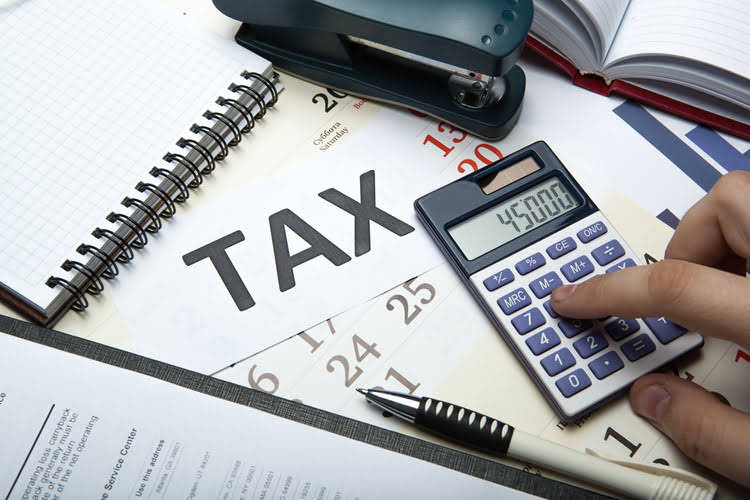
This indicates 3 years from the date you filed your return or the due date of the tax return, whichever is later. Record-keeping for small business expenses is a tough task, so be sure to check out the IRS guidelines as well. Dive into why recordkeeping is so important for your business and how you can streamline the process. Copyright ©2024 MH Sub I, LLC dba Nolo ® Self-help services may not be permitted in all states. The information provided on this site is not legal advice, does not constitute a lawyer referral service, and no attorney-client or confidential relationship is or will be formed by use of the site. In some states, the information on this website may be considered a lawyer referral service.
- If you have mistakes to fix or transactions to track down, don’t stress.
- Every successful business owners know the importance of bank reconciliations.
- An effective records management system doesn’t take much time to maintain and streamlines bookkeeping, tax preparation, and financial audits.
- Sometimes, when you procrastinate, you wind up making more work for yourself later on.
- Some businesses grow out of the manual system, but others (like independent contractors and freelancers) can find that the manual system works just fine in the long run, too.
- To hold all tax-related paperwork, financial statements, and receipts, it creates a new file or folder for each.
Customer and Vendor Records
- It can be produced for one period to gain insight into the month’s profitability, or produced for the year to date.
- You have the information you need to monitor how your business is doing and make more-informed business decisions.
- By implementing the right record keeping systems, organizing and maintaining records accurately, and leveraging professional help when needed, you can maximize the benefits of record keeping.
- Investing time and resources in selecting and implementing the appropriate systems and tools will contribute to the accuracy, accessibility, and efficiency of your record keeping processes.
- By maintaining accurate and up-to-date records, you can optimize customer interactions, enhance vendor partnerships, and contribute to the overall success of your small business.
- Effective record-keeping is fundamental to the success and sustainability of small businesses.
- It shows your current assets and liabilities, as well as the total sum of your equity and liabilities (such as debt your company owes).
Thanks to the ubiquity of QuickBooks, there are many online training resources and bookkeeping forums to get support when needed. Using a spreadsheet is the cheapest option, especially if you use Google Sheets rather than Microsoft Excel, which costs a monthly fee. However, general ledgers can get complicated if you’re trying to juggle multiple accounts. Due to the Period of Limitations, three years is the suggested duration. You have a chance to make changes to your tax returns during this time and are eligible for an audit by the IRS. As a result, you are free to discard the returns and the supporting paperwork.
Track everything—everything!
- Ideally, you should keep business tax records and receipts for a period of 3 years.
- Finding the right level of cash to be kept on hand requires a proper cash flow forecast and cash monitoring.
- Remember, timely and accurate sales and inventory records are vital to running a successful small business.
- However, storing records digitally also increases the risk of data breaches, which can result in them being stolen or seen by the wrong eyes.
- Filter receipts based on vendors, date, price, currency, categories, payment type, and more.
- Generally, you can expect to pay between $200 and $2,500 per month for business bookkeeping services.
- Whether it’s expanding the business, investing in new equipment, or hiring additional staff, financial records offer the necessary insights to assess these decisions’ viability and potential impact.
Double-check past-due receivables, inventory, and income to file taxes and assess business growth. These steps will provide a comprehensive understanding of your business’s financial health and progress over the past year. Small business financial software is a type of accounting software designed to meet the needs of small businesses. These programs can help you manage your accounts, track your revenue and expenses, and store your receipts and important record keeping for small business financial documents. They can also keep you in compliance with tax law, help you prepare filings at tax time, and simplify the process of applying for a small business loan. To put it simply, record-keeping is maintaining accurate records and documenting events or transactions in an accounting system.
- By having detailed records, owners gain a clear picture of their financial health, helping them to identify trends, strengths, and areas that need improvement.
- If you are keeping every scrap of paper or email simply because you may need it later, it’s time to change your M.O.
- It helps you oversee all the money going in and out of your bank account.
- You can check for small business packages that use simple templates for all financial documents.
- The same can happen if you don’t categorize your transactions right.
Debt service obligations

However, storing records digitally also increases the risk of data breaches, which can result in them being stolen or seen by the wrong eyes. Whether you manage your records with a software program or a manual form of record-keeping, it is important to know which types of records you should keep. Despite what many may think, some of the best financial record-keeping systems are those that are simple and easy to maintain. This content may include information about products, features, and/or services that SoFi does not provide and is intended to be educational in nature. If you choose to use double-entry bookkeeping—and we strongly suggest you do! We’ll show you examples of how to record a transaction as both a credit and debit later on.

Implement a document management system
Learn how to effectively manage your small business finance with our step-by-step guide. Keep accurate records and stay on top of your finances for maximum success. Most accounting software will automatically import your bank data so you don’t have to manually enter and organize Bookkeeping for Chiropractors each transaction.


No matter what system you implement, incorporate a practice of reconciliations, by comparing the numbers in your system to the source records, like bank statements, receipts, and invoices. This habit improves communication, boosts transparency with your bookkeeping team, and promotes longevity and compliance. Our balance sheet template (pictured below) is a great way to track and analyze your financial health. It shows your current assets and liabilities, as well as the total sum of your equity and liabilities (such as debt your company owes). The financial data on balance sheets helps you determine your company’s financial performance, which is essential for guiding future financial transactions and business decisions.